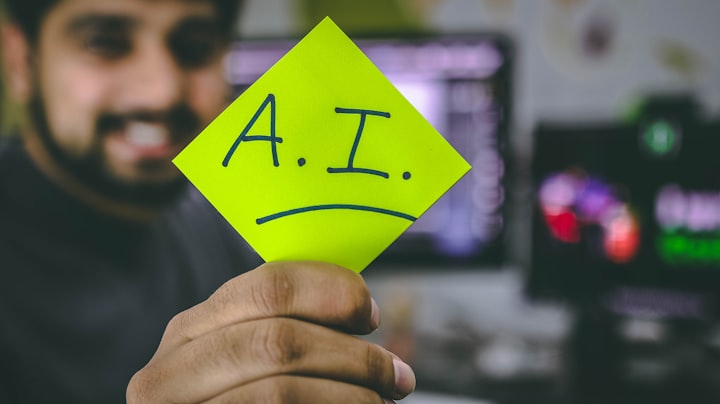New jobs created due to Artificial Intelligence and the future of AI jobs
AI jobs present and future

AI has sparked the creation of numerous new job roles across various industries. Some examples include:
1. AI Ethics Specialists: Professionals who ensure AI systems are developed and deployed ethically and responsibly.
2. Data Labelers: Individuals who annotate and label data to train AI algorithms, ensuring accuracy and reliability.
3. AI Trainers: Experts who design and deliver training data sets to improve AI models' performance.
4. AI Product Managers: Professionals responsible for overseeing the development and deployment of AI-powered products and services.
5. AI Solution Architects: Specialists who design and implement AI solutions tailored to specific business needs.
6. AI Chatbot Developers: Developers who create and maintain chatbots to enhance customer service and user experience.
7. AI-Enhanced Healthcare Roles: Such as AI-assisted diagnostics specialists or healthcare data analysts.
8. Autonomous Vehicle Technicians: Workers responsible for maintaining and repairing self-driving vehicles.
9. AI Security Specialists: Professionals focused on securing AI systems from cyber threats and vulnerabilities.
10. AI Integration Consultants: Experts who help businesses integrate AI technologies into their existing workflows and systems.
These roles highlight the diverse opportunities emerging in the wake of AI advancements.
The future of AI jobs is promising but also evolving rapidly. While some roles may become automated or transformed by AI, many new opportunities are emerging. Here's a glimpse of what the future might hold:
1. **AI Specialists**: Demand for experts in AI research, development, and implementation will continue to grow. Specialized roles in machine learning, natural language processing, computer vision, and robotics will be in high demand.
2. **AI Ethicists and Regulators**: With increasing concerns about the ethical implications of AI, there will be a need for professionals who specialize in AI ethics, policy-making, and regulation to ensure responsible and equitable AI deployment.
3. **AI Augmented Roles**: Many existing jobs will be augmented by AI, requiring workers to develop skills in working alongside intelligent systems, interpreting AI-generated insights, and making decisions based on AI recommendations.
4. **Data Specialists**: As AI relies heavily on quality data, roles related to data collection, labeling, cleaning, and analysis will continue to be crucial. Data engineers, data scientists, and data analysts will remain in high demand.
5. **AI-Driven Creativity**: Jobs that require creativity, such as content creation, design, and marketing, will see AI augmentation. Professionals will collaborate with AI tools to enhance their creative processes and deliver more personalized and impactful content.
6. **AI-Assisted Healthcare Roles**: Healthcare professionals will work alongside AI systems for diagnosis, treatment planning, and patient care. New roles may emerge in medical AI research, AI-powered personalized medicine, and healthcare data analysis.
7. **AI-Powered Customer Service**: Customer service roles will be enhanced by AI-powered chatbots and virtual assistants. Customer service representatives will need to develop skills in managing AI systems and providing personalized support.
8. **AI Integration Specialists**: Businesses will require experts who can integrate AI technologies into various domains, customize AI solutions to meet specific needs, and ensure seamless collaboration between AI systems and human workers.
9. **AI Security Experts**: As AI systems become more pervasive, there will be an increased demand for cybersecurity professionals with expertise in protecting AI systems from cyber threats, data breaches, and adversarial attacks.
10. **Reskilling and Upskilling**: The rapid advancement of AI will necessitate continuous reskilling and upskilling efforts to adapt to changing job requirements and stay relevant in the workforce.
Overall, while AI may automate certain tasks, it will also create new job opportunities and transform existing roles, requiring a workforce that is adaptable, skilled, and ethically conscious.
It has also been argued that AI will not replace human beings completely as no matter how much the world changes human touch will perpetually hold significance.






Comments (1)
AI will not reduce job opportunity rather new jobs in this field will emerge